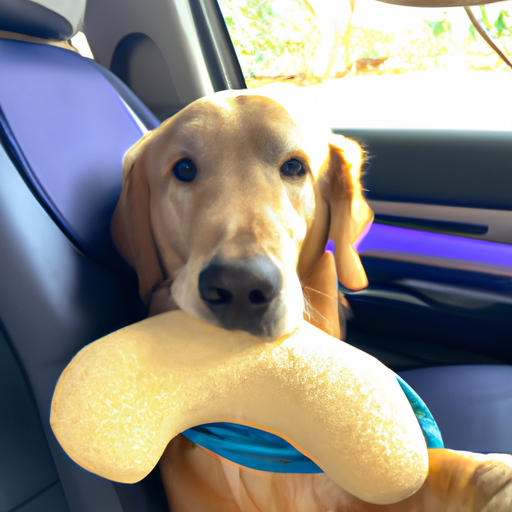Understanding Your Dog’s Motion Sickness
You love your dog and you want to take them everywhere with you. However, if your furry friend starts drooling excessively, whining, or even vomiting during car rides, they might be suffering from motion sickness. The condition is not uncommon among dogs, especially puppies, and can make travel stressful for both of you. But fear not, there are several remedies you can try to help your dog feel more comfortable on the road.
A Look at Over-the-Counter Remedies
Over-the-counter (OTC) remedies are often the first port of call for addressing canine motion sickness. Here are some you might consider:
- Dramamine (Dimenhydrinate): This is a human medication that can also be used for dogs. It works by blocking the signals to the vomiting center in the brain.
- Benadryl (Diphenhydramine): Another human medication, Benadryl can also help with motion sickness in dogs by reducing the impact of motion on the inner ear.
Note: Always consult your veterinarian before giving your pet any OTC medication to ensure the correct dosage and to rule out any potential negative effects.
Prescription Medications – The Vet Knows Best
If OTC remedies aren’t doing the trick, it may be time to consult with your vet. They can provide prescription medication specifically designed for dogs with motion sickness. One such medication is Cerenia (Maropitant Citrate), an FDA-approved drug that prevents vomiting due to motion sickness in dogs.
Natural Remedies and Prevention
Sometimes, the best approach is a natural one. Here are a few non-medicated options you may want to try:
- Ginger: This root has been used for centuries to treat nausea and motion sickness in humans, and it can work for dogs too.
- Pressure wraps: These wraps apply gentle pressure to your dog’s torso, helping to calm them and reduce anxiety that can contribute to motion sickness.
Along with these treatments, you can also use preventative tactics such as:
- Gradual conditioning: Start with short, non-stressful car rides and gradually increase the duration over time.
- Limiting food intake before travel: This can help reduce the likelihood of your dog becoming sick.
Making the Journey Comfortable
Lastly, ensuring your dog’s comfort during the journey can help prevent motion sickness. Some measures include:
- Keeping the car cool and well-ventilated
- Providing a comfortable and secure place for your dog to relax
- Making frequent stops for fresh air and walks
Also, consider the following table for a quick comparison of potential remedies:
| Treatment | Type | Pros | Cons |
|---|---|---|---|
| Dramamine | OTC | Easily available | Possible side effects |
| Cerenia | Prescription | FDA-approved for dogs | Requires veterinary consultation |
| Ginger | Natural | No side effects | Efficacy varies |
| Pressure Wraps | Prevention | Non-invasive | Might not work for all dogs |
FAQ
- Q: Can I give my dog human motion sickness medication?
- A: Some human medications can be used for dogs, but always consult your vet first.
- Q: Does motion sickness in dogs go away with age?
- A: Some dogs outgrow motion sickness, but others may continue to experience it into adulthood.
- Q: Can I prevent my dog from getting motion sickness?
- A: Yes, conditioning and certain preventative measures can help. However, some dogs might still need medication.
Remember, it’s always best to consult with a veterinarian before starting any new treatment plan for your dog’s motion sickness. You know your dog best, and with a little trial and error, you can help them feel more comfortable on the road.



